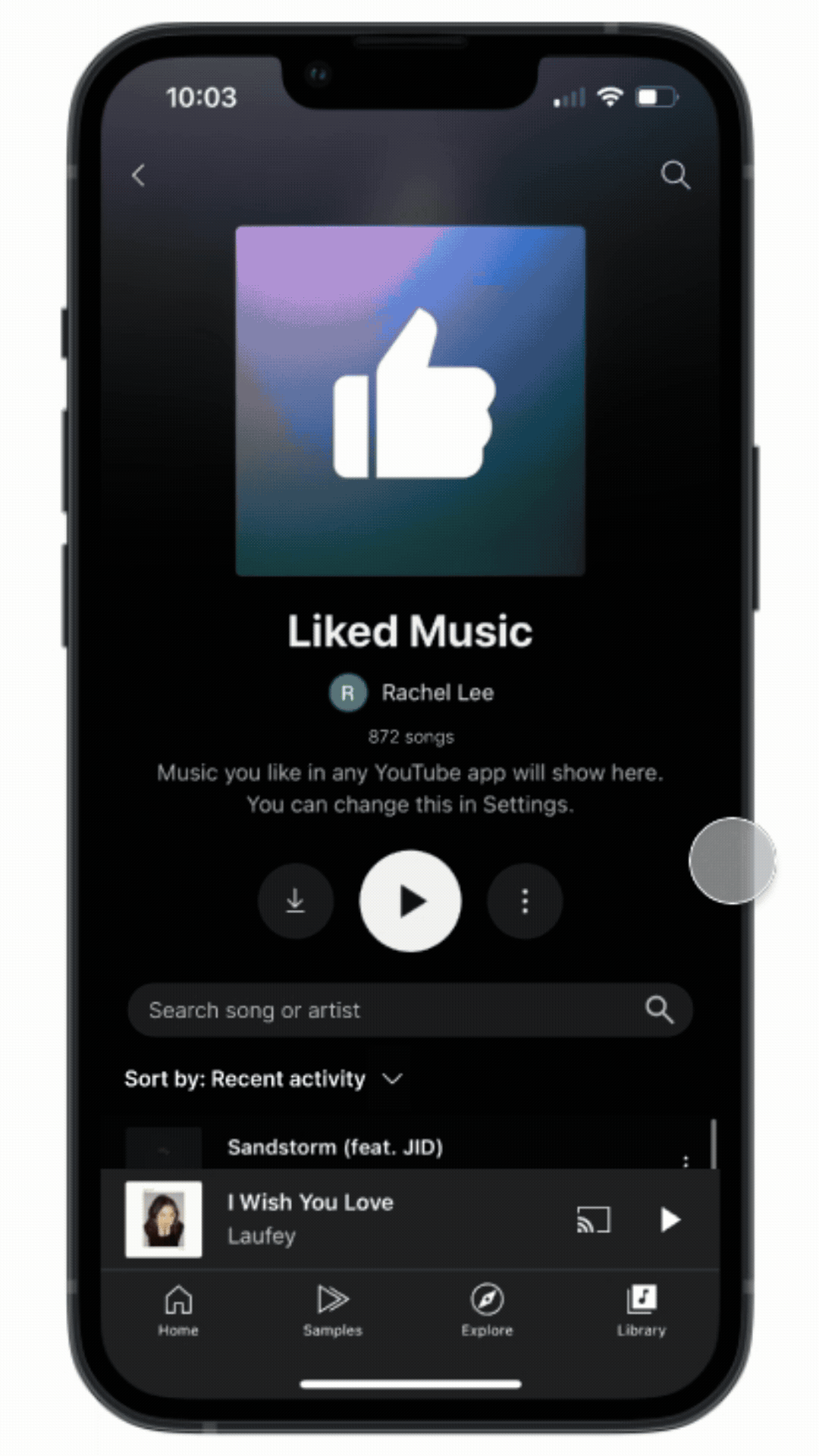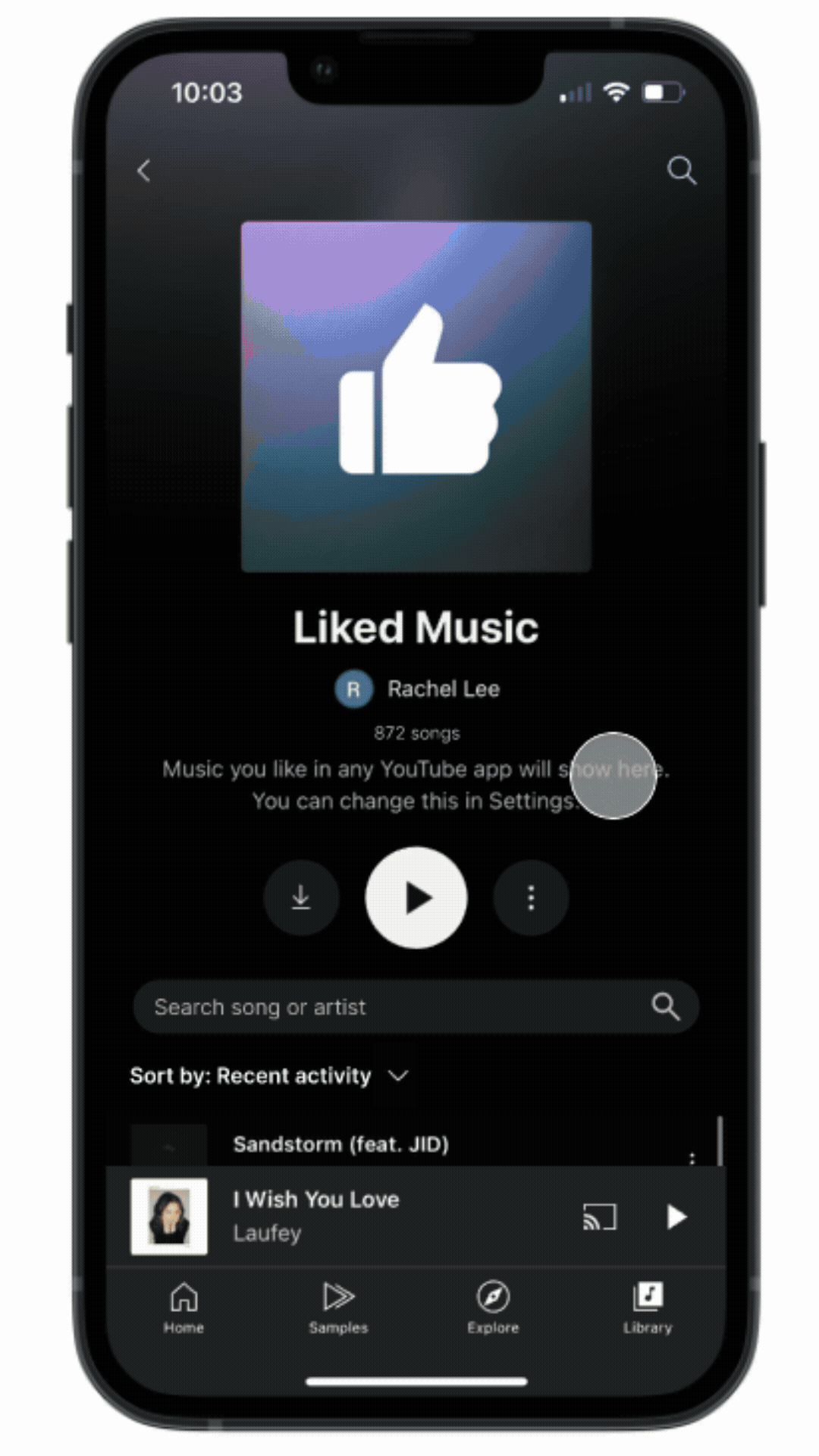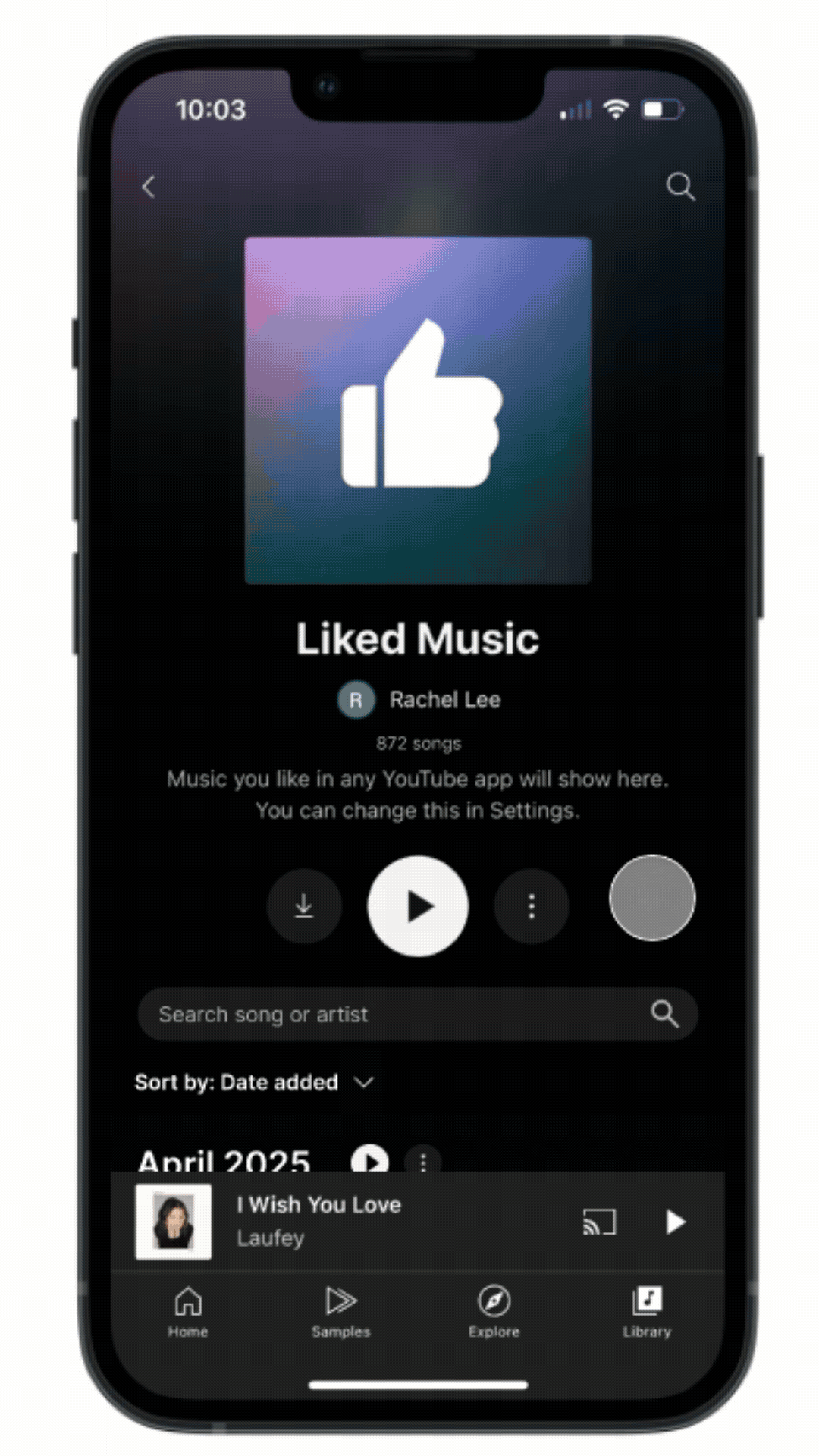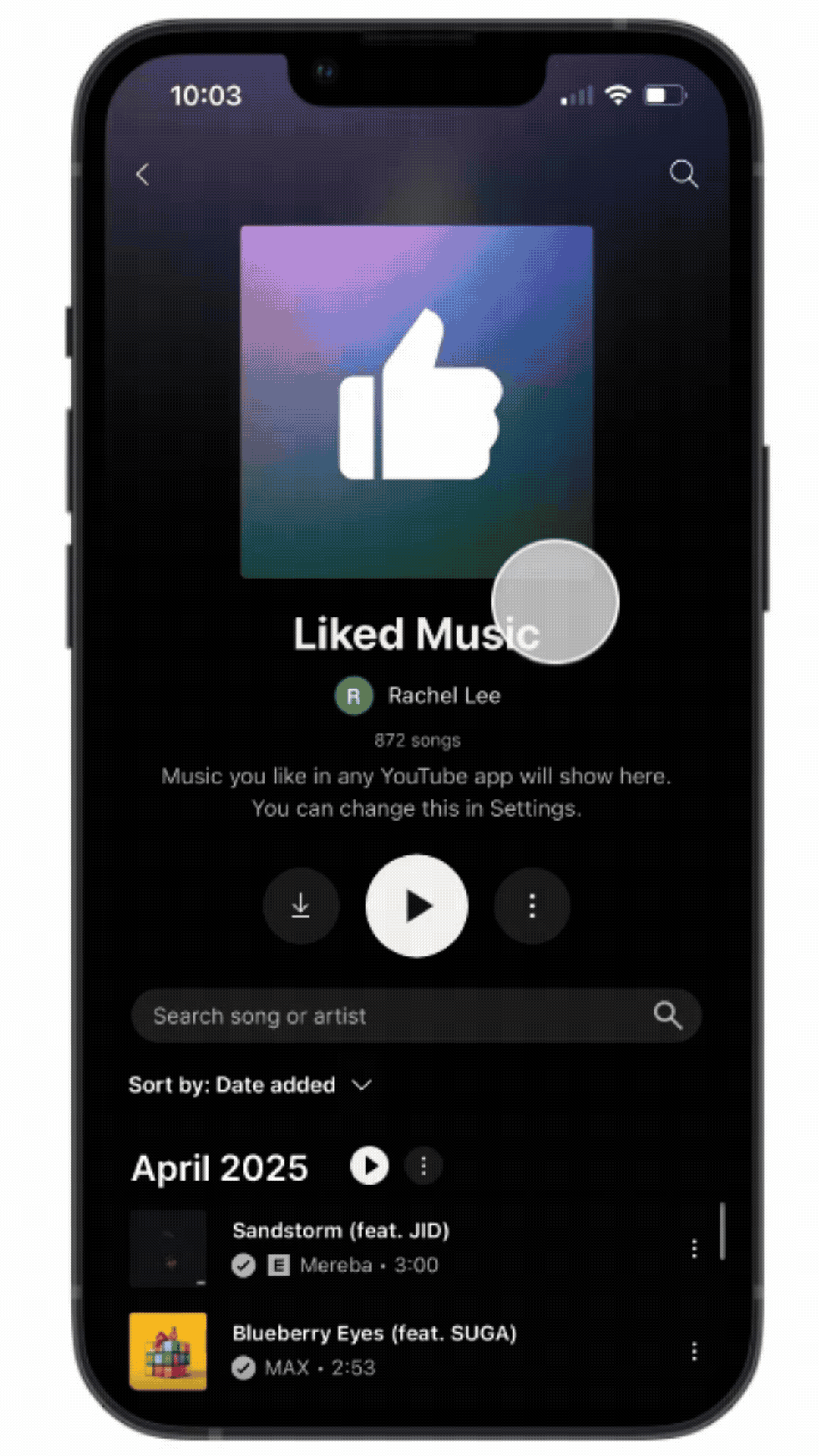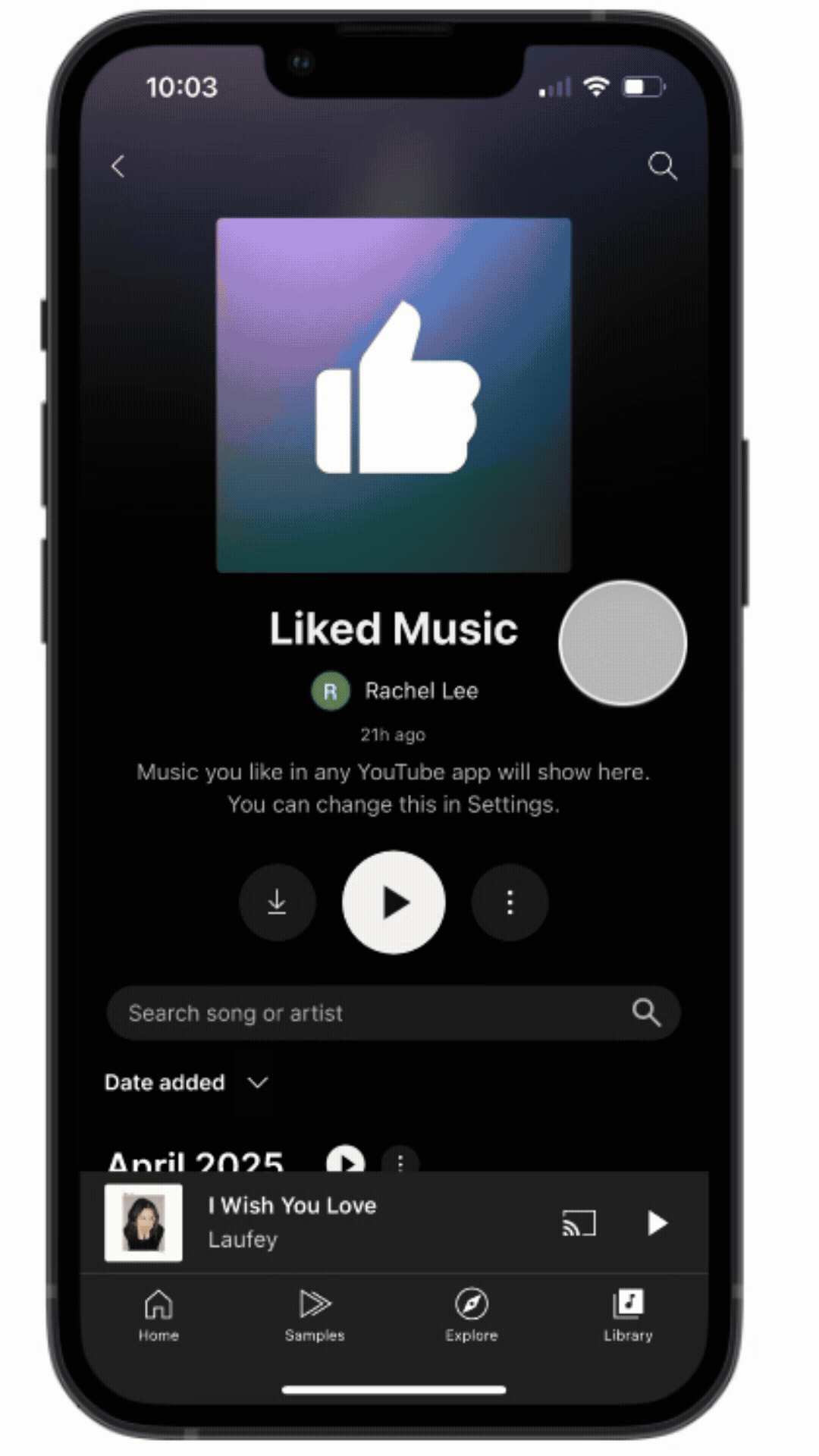How I enhanced the YouTube Music experience by building a feature that helps users find songs faster
YouTube Music
Role:
UX/UI Designer
Project Type:
Added Feature
Tools:
Figma
FigJam
Duration:
75+ hours
YouTube Music is a music streaming platform with over 100 million songs to access and over 100 million Premium subscribers. The Premium version offers ad-free listening, offline listening, and several other features. I use the Youtube Premium Music app because it came in a bundle with other subscriptions, but I’ve come to see the benefits of my music app sharing my preferred video media platform. I’m an avid user of the app, however it falls behind other major music apps in certain basic capabilities.
Where YouTube Music stands against other platforms
Overview
Empathize
There is no way to filter through songs or search for a song within a playlist, making it difficult for users to find the song they’re looking for without scrolling through the entire playlist.
Problem
We want to learn how people find songs within playlists currently in YouTube Music so that we understand what will make this process more efficient.
Research Goal
Competitive Analysis
What’s already out there?
Compared and contrasted other music streaming platforms on their strengths, weaknesses, opportunities, and threats.
Spotify, Apple Music, Amazon Music
Listen ad-free with paid subscriptions
All have features to curate playlists for the user
Amazon and Apple Music have high quality audio compared to Spotify
What are they doing well?
Amazon and Apple don’t have as developed social features as Spotify
Amazon and Apple don’t have ways to effectively filter through or search in playlists
Limited use without paid subscription
Where are they lacking?
User Interviews
What do real people need?
I conducted remote interviews on 5 participants who listen to music regularly on a music streaming platform.
*Note that I could not find enough YouTube Music users to participate, so participants include Spotify, Apple Music, and YouTube Music users. All participated in a short usability test to understand how YouTube Music currently operates.
Affinity Mapping
What did I learn?
Interview Insights and Observations
Listening Behavior & Routines - music is a constant in users’ lives, users organize music based on mood, users listen to music with intention, users listen to and organize their music in unique ways, reasons for continued use of preferred music app
Discovery & Exploration - impact discovering music has on users, users stray from their preferred apps for music discovery, users want to rediscover music from their history
Pain Points Across Platforms - users desire organization tools within playlists, users struggle to find songs by searching, other issues with their music platforms / desired features
Social Experience - users are influenced by social features, users want the ability to share music across platforms
Usability Test Insights and Observations
Users found it difficult to find songs as filters were underdeveloped
Users had trouble navigating playlists without in-playlist search function
Users were confused by the general search feature
Users noted overall design opinions
Improving in-playlist navigation is essential to meet users’ emotional connection to music and resolve major usability gaps in playlist management.
Key Takeaway
Define
Persona
YouTube Music users need a way to search and filter within playlists because it is difficult for them to find previously saved songs.
POV + HMW
How might we make it easier for YouTube Music users to rediscover specific songs within their saved playlists?
Ideate
Develop a feature that allows the user to search and filter within playlists to find specific songs
Solution
What are the most important features to include to achieve this goal?
Feature Roadmap
Prioritize in-playlist search and filter features. Users will be able to find songs within playlists more easily and efficiently than they can now.
Prototype
What are the user’s goals?
Task Flows
Task #1: Find Song by Title
Users can search within playlist to find a specific song
Task #2: Find Song by Date Added
Users can filter alphabetically by title, alphabetically by artist, and by date added to find songs from a specific time period
Task #3: Play Songs from a Specific Month
When under the ‘date added’ filter, users can play / shuffle through songs from a specific month or set of months instead of manual playlist creation
Wireframes
Now let’s design
Low Fidelity
Hand drew key screens for each flow to take into mid-fidelity
Explored ways to add features in a seamless way to blend with YouTube Music’s brand
High Fidelity Wireframe
Let’s put it all together
In designing these screens, I focused on adding in these new features as seamlessly as possible. I wanted users to feel like they were using the real app.
In-Playlist Search
Users often forget the artist and remember the title or vice versa, so searching within playlists narrows down options from the general search for songs in their playlists.
In-Playlist Filter
Users can filter through playlists according to artist, title, and date added to easily find songs.
Users can play or shuffle songs from a particular month of saved songs, saving them the effort of creating their own playlists.
Monthly Playlist
Test
5
Participants
5 users participated in usability testing using my Figma interactive prototype.
100%
Success Rate
Users easily completed all the tasks with minimal errors in a timely manner.
5/5
Ease of Use
User’s thought the changes made to the YouTube Music app were clear and intuitive.
Usability Testing Results + Iterations
Where can the new Youtube Music features be improved?
I learned about several fixable pain points in my participants’ process of testing the prototype that regard small changes to improve the flow
1. See number of songs in the playlist
Revised to show number of songs overall in the playlist. People wanted to know how many songs are there to see if they could simply scroll to find the song.
Before
After
2. Make filter more obvious
Revised ‘sort by’ filter to make more obvious to click. It took users extra time to find this at first.
Before
After
3. Make months more visible while scrolling
Revised to make months sticky to the top for more visibility while scrolling.
Before
After
Future Iterations
What are next steps for YouTube Music?
Add features to desktop format - users often use their music streaming platforms on laptops and desktops as well as mobile
AI powered smart filters - within playlists and saved music, AI can filter users’ music by mood, genre, etc. for ease of playlist navigation
What did I learn from creating these YouTube Music features?
Key Takeaways
This project has helped me think more critically like I might as a UX designer working for an actual company. It is unlikely that I would be the only person working on a project from start to finish. With this project, I was able to take an existing platform and work under those constraints and design a feature that fits seamlessly within it.
It’s not always easy to find the right participants for a project. In this case, I wasn’t able to find enough YouTube Music listeners in the groups I reached out to, so I worked around this by conducting usability tests early on to give the participants who don’t use YouTube Music insight into how it operates.
It is important to schedule interviews early and ask more people than required, just in case.











